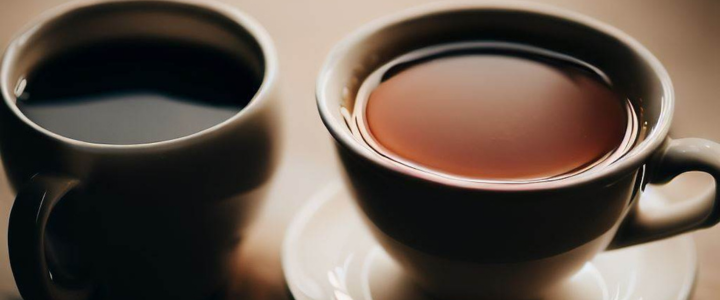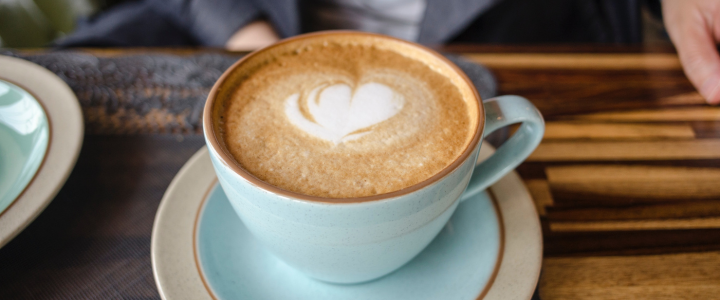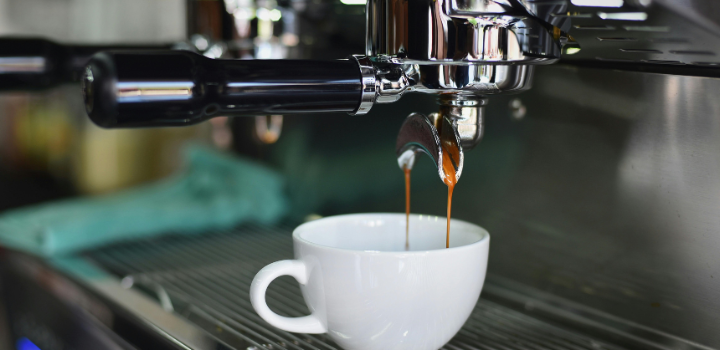Tea and coffee are two popular beverages that have been enjoyed for centuries. Each has its own unique characteristics and benefits. In this article, we will delve into the world of tea and coffee to answer the age-old question: What is better: tea or coffee? We’ll compare their qualities, flavors, health benefits, and overall enjoyment to help you determine which one might be the perfect fit for you, whether you are a tea enthusiast or a coffee lover.
Flavor Profiles:
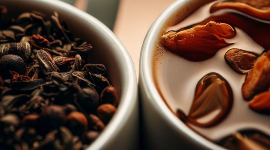
Tea: With a diverse range of flavors, tea offers something for everyone. From delicate and floral white teas to robust and earthy black teas, the options are truly endless. Some notable tea varieties include green tea, oolong tea, and herbal infusions. Each type of tea has its own distinct aroma, taste, and complexity.
Coffee: Coffee is known for its rich, bold flavors. The taste of coffee can vary greatly depending on the bean origin, roast level, and brewing method. From the bright and acidic notes of a fruity Ethiopian coffee to a smooth and chocolatey Colombian blend, coffee lovers can experience an array of flavors in their cup. The complexity of coffee flavors often appeals to those seeking a strong and intense taste experience.
Health Benefits:

Tea: Tea is celebrated for its numerous health benefits. It is packed with antioxidants, such as catechins and flavonoids, which protect the body from harmful free radicals. Studies have shown that drinking tea regularly may lower the risk of heart disease, aid in weight management, and improve brain function. Additionally, certain types of herbal teas, like chamomile and peppermint, can promote relaxation and aid digestion.
Coffee: Despite its reputation, coffee also offers several health benefits. It is a great source of caffeine, which can improve alertness and focus. Coffee has been linked to a reduced risk of developing type 2 diabetes and Parkinson’s disease. Moreover, the antioxidants found in coffee may contribute to a lower risk of certain types of cancer. However, it’s important to consume coffee in moderation to avoid potential negative effects, such as increased heart rate and disrupted sleep patterns.
Enjoyment and Ritual:

Tea: For many tea enthusiasts, tea drinking is a soothing and mindful experience. The preparation of tea involves mindfulness and an appreciation for the brewing process. The delicate aroma and sipping of a warm cup of tea can be a calming ritual, allowing for moments of relaxation and reflection. Tea ceremonies, such as the traditional Japanese matcha tea ceremony, further enhance the enjoyment and appreciation of tea.
Coffee: Coffee, on the other hand, is often associated with a quick energy boost and a social aspect. The aroma of freshly brewed coffee can be invigorating, signaling the start of a productive day. Enjoying a cup of coffee with friends or colleagues fosters connection and conversation. Coffee shops have become popular spaces for socializing and working, offering a vibrant ambiance and a variety of coffee options to suit different preferences.
The Rise of Coffee: A Global Phenomenon:

1)Coffee, with its origins in Ethiopia, has rapidly gained popularity worldwide in recent centuries.
2)Its bold flavors and energizing properties have made it a favored choice for many.
3)Countries like Brazil, Colombia, Italy, and the United States have embraced coffee culture with great enthusiasm.
-Brazil, the largest coffee producer, boasts a thriving coffee culture, with both locals and tourists indulging in the Brazilian coffee experience.
-Colombia, known for its high-quality arabica beans, offers a rich coffee tradition where every cup is treated as an art form.
-Italy, famous for its espresso, has perfected the art of brewing coffee, making it an integral part of Italian daily life, from morning rituals to post-meal digestives.
-The United States has embraced coffee in all its forms, from large chains to artisanal roasters, catering to a diverse range of taste preferences.
4)These countries exemplify the global phenomenon of coffee, demonstrating its ability to captivate cultures around the world.
The Great Debate: Tea vs Coffee:

The preference for tea or coffee is deeply personal, influenced by taste, cultural upbringing, and health considerations.
While tea and coffee share similarities, they also have distinctive characteristics that set them apart.
Taste: Tea often offers a more delicate and nuanced flavor profile, while coffee excites the palate with its robust and bittersweet notes.
Aroma: Tea can captivate with its floral, fruity, or earthy scents, whereas coffee entices with its rich, intoxicating aroma.
Caffeine Content: Coffee generally contains more caffeine than tea. While this may be preferred for an energy boost, it may not suit those sensitive to its stimulating effects.
Health Benefits: Both tea and coffee possess health benefits attributed to their antioxidant properties. Tea has been associated with reduced risk of heart disease and certain cancers, while coffee has shown potential in improving cognitive function and reducing the risk of chronic diseases like Parkinson’s and Type 2 diabetes.
Ritual and Culture: Tea and coffee often come with their unique rituals and cultural practices, providing a sense of tradition and community.
–Tea ceremonies invite mindfulness, fostering a deeper connection with oneself and others.
–Coffee breaks are a social affair, offering moments of relaxation and camaraderie in bustling cafes or workplaces.
Ultimately, the better beverage between tea and coffee is subjective and dependent on personal preference.
Conclusion:
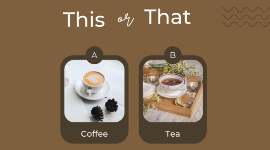
In the eternal debate of “What is better: tea or coffee?,” there is no definitive winner. The global admiration for both beverages speaks to their enduring appeal and the diverse tastes of people worldwide. Whether one finds solace in the tranquility of a warm cup of tea or seeks invigoration from a bold espresso shot, the choice between tea and coffee ultimately rests in the hands and hearts of individuals. Whichever path is chosen, the journey of flavor, culture, and personal enjoyment is bound to be a delightful one.

